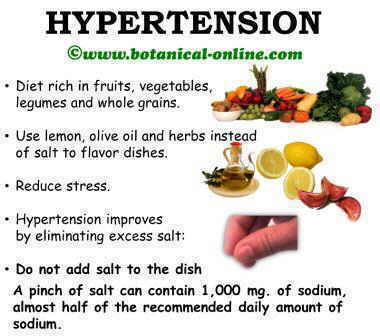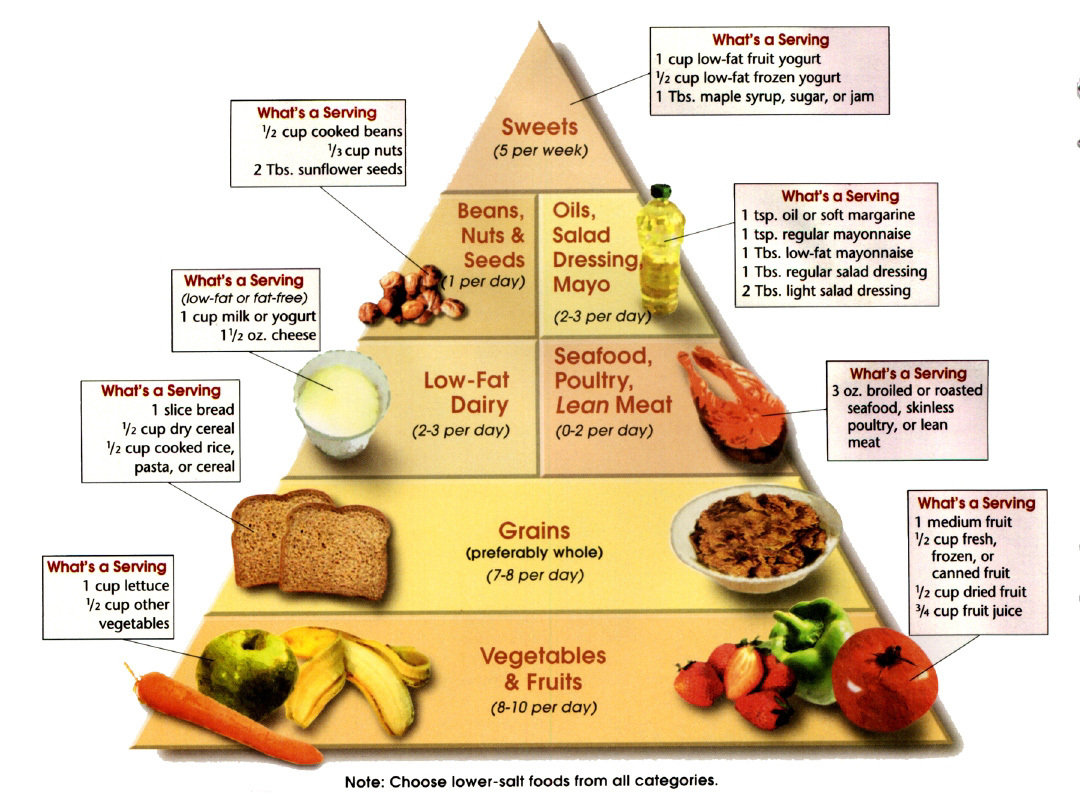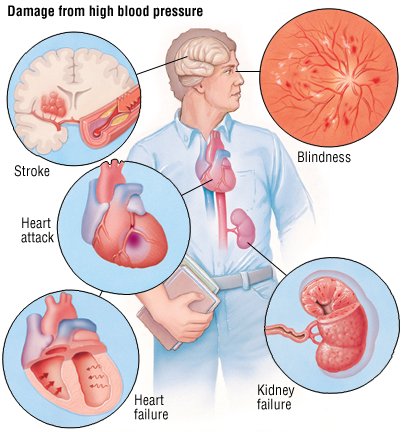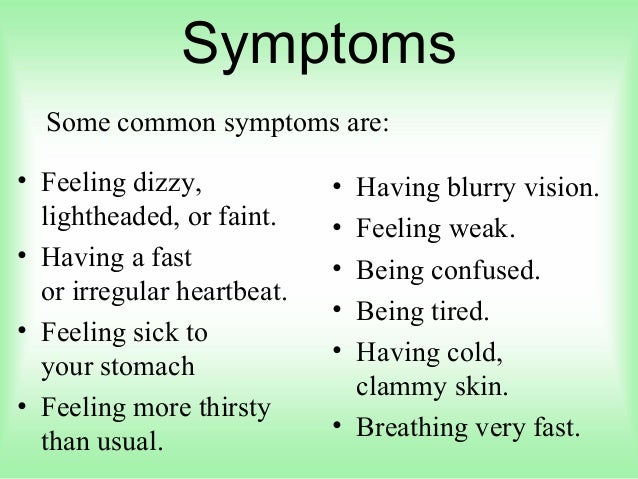 Doctors Who Treat High Blood P
Doctors Who Treat High Blood P ressure
ressure
Your primary care doctor will treat most cases of high blood pressure. You may require more appointments depending on your blood pressure levels. If your doctor thinks you have other cardiac conditions (which are common complications of chronic high blood pressure), you may be referred to a doctor who specializes in heart problems (a cardiologist).
Complications of High Blood Pressure
High blood pressure is a silent killer because it can lead to some very serious complications. High blood pressure can stretch out your arteries and weaken them (an aneurysm). It can lead to an abnormal heart rhythm (arrhythmia). It can also make you more likely to have a heart attack or heart failure, kidney problems, or even a stroke.
High Blood Pressure Prevention
If you have a family history of high blood pressure, you should work with your doctor on reducing your risks. You should also take the following measures:
Be sure to take your medication for high blood pressure as directed and monitor your blood pressure at home with a monitoring device. Talk to your doctor if you have any concerns about high blood pressure.
There are dozens of different medications to treat high blood pressure. They are known as antihypertensives. They are divided into 11 categories based on how they work. Each has its own benefit and side effect profile. With so many options available, finding the best one for you sometimes takes a little time and patience. It’s well worth the effort since the stakes for your health are so high.
Talk to your doctor to determine the best treatment plan for you.
DiureticsDiuretics help the kidneys get rid of excess water and salt (sodium). This reduces the volume of blood that needs to pass through the blood vessels, and blood pressure goes down. There are three major types of diuretics defined by how they work. Those in the thiazide group generally have fewer side effects than the others, particularly when used at the low doses that are generally used in treating early high blood pressure.
Thiazide diuretics include:
Potassium-sparing diuretics include:
Loop diuretics include:
Combination diuretics include:
Beta Blockers
Beta blockers help the heart beat with less speed and force. The heart pumps less blood through the blood vessels with each beat, and blood pressure decreases. These include:
Angiotensin Converting Enzyme Inhibitors (ACEI)
ACE inhibitors keep the body from making a hormone called angiotensin II, which causes blood vessels to narrow. These medications decrease blood pressure by helping blood vessels constricted by angiotensin II expand and let more blood through. They include:
Angiotensin II Receptor Blockers (ARB)
This class of drugs also protects the blood vessels from angiotensin II. In order to tighten blood vessels, the hormone must bind with a receptor site. These medications keep that from happening. Consequently, blood pressure falls. These medications include:
Calcium Channel Blockers
Movement of calcium into and out of muscle cells is necessary for all muscle contractions. These drugs keep calcium from entering the smooth muscle cells of the heart and blood vessels. This makes the heart beat less forcefully and helps blood vessels relax. As a result, blood pressure decreases. They include:
Alpha Blockers
Your body produces a type of hormone called a catecholamine when under stress or chronically in some disease states. These hormones, including norepinephrine and epinephrine, cause the heart to beat faster and with more force and they constrict blood vessels, all of which raises the blood pressure. These effects occur when these hormones attach to a receptor. The muscles around some blood vessels have what are known as alpha adrenergic receptors. When a catecholamine binds to an alpha receptor, the muscle contracts, the blood vessel narrows and blood pressure rises. These drugs block binding to alpha receptors, so blood is able to flow through the blood vessels more freely, and blood pressure falls. They include:
Alpha-Beta Blockers
Alpha-beta blockers have a combined effect. They block the binding of catecholamine hormones to both alpha and beta receptors. Therefore, they can decrease the constriction of blood vessels like alpha blockers, and slow down the rate and force of the heartbeat like beta blockers. They include carvedilol (Coreg) and labetolol hydrochloride (Normodyne, Trandate).
Alpha-2 Receptor Agonists
These drugs reduce activity in the sympathetic nervous system, like other alpha blockers, which decreases blood pressure. The main biologic difference between them and other alpha blockers is they target only one type of alpha receptor. They are a first-choice treatment during pregnancy, because they generally pose few risks for the mother or fetus. One example is methyldopa (Aldomet).
Central Agonists
These medications keep the brain from sending messages to the nervous system that would release catecholamines and thus speed up heart rate and tighten blood vessels. The heart doesn’t pump as hard and blood flows more easily, so blood pressure decreases. These include:
Peripheral Adrenergic Inhibitors
This group of drugs work to block certain chemical messengers inside the brain. This keeps the smooth muscles from getting the message to constrict. These medications are generally used only if other medications aren’t effective.
Vasodilators
Vasodilators relax the muscles in the walls of blood vessels, especially small arteries called arterioles. This widens the blood vessels and allows blood to flow through them more easily. As a result, blood pressure falls. This group includes hydralazine hydrochloride (Apresoline) and minoxidil (Loniten).
High Blood Pressure Drug Treatment Plans
The first-choice medication for high blood pressure is usually a thiazide diuretic. For some people, a diuretic alone is enough to control blood pressure. However, in many cases the diuretic is combined with another medication in one of these categories:
Adding a second medication may lower blood pressure more quickly than a diuretic alone. It also allows you to take less of each medication, which may reduce side effects. The choice of an additional blood pressure medication is often influenced by any other health problems you may have. For example, a patient with coronary artery disease may receive a beta blocker because of its blood pressure lowering properties and because it decreases the overall risk of death. If you have diabetes in addition to high blood pressure, your doctor may choose an ACE inhibitor or ARB in order to protect the kidneys from diabetic damage and help manage blood pressure.
If these types of medication don’t lower blood pressure enough you can try other types. However, the less commonly used medications may cause more side effects. This is why they are generally reserved for difficult-to-treat cases. 






